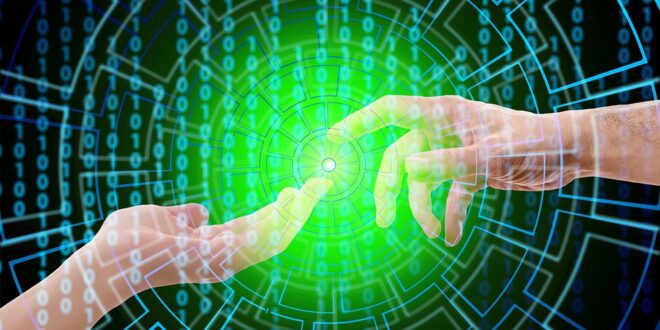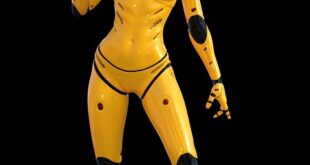The Intelligent Automation Revolution: AI’s Impact on Jobs
Embracing the Rise of Intelligent Automation
The rapid advancements in artificial intelligence (AI) have laid the foundation for a revolution in the workforce. Intelligent automation, fueled by AI-driven technologies, is transforming industries, creating new possibilities, and challenging traditional notions of work. While some fear the impending changes, this paradigm shift presents us with exciting opportunities for growth, innovation, and efficiency. Let’s dive into how AI’s impact on jobs is fostering a brighter future.
From Repetitive Tasks to Creative Professions
AI empowers businesses to automate mundane and repetitive tasks, allowing employees to focus on more strategic and creative endeavors. This shift enables individuals to step away from monotonous work, promoting engagement and job satisfaction. Machines can analyze vast amounts of data in seconds, providing employees with valuable insights to make informed decisions, drive innovation, and create unique solutions.
The Rise of Collaborative Intelligence
Instead of replacing jobs, AI and automation are transforming the role of workers, fostering a collaborative relationship between humans and machines. AI-enhanced technologies supplement and augment human capabilities, leading to increased productivity and efficiency. Intelligent automation enables employees to become decision-makers, tapping into new avenues of problem-solving with the help of AI algorithms and tools.
Reimagining Industries for Growth
Embracing AI-driven automation reshapes industries, unlocking new possibilities and improving business outcomes. For instance, in healthcare, intelligent automation assists healthcare providers with diagnosis, speeds up administrative processes, and enhances patient care. Similarly, in manufacturing, AI-powered robotics streamline production lines, ensuring accuracy and optimizing workflow. These transformations not only lead to better results but also create new job opportunities necessitating AI expertise.
Reskilling for the Future
While AI automates certain tasks, it also accelerates the need for upskilling and reskilling the workforce. The demand for professionals with AI-related competencies, such as machine learning, data analysis, and algorithm design, is exponentially increasing. Companies and educational institutions are now focusing on providing training programs to equip employees and individuals with the skills needed to thrive in this era of intelligent automation.
Balancing Automation and Humanity
As AI permeates into more aspects of our lives and workplaces, it’s crucial to find a delicate balance between automation and human touch. Despite the rise of smart technologies, certain roles heavily rely on human empathy, intuition, creativity, and critical thinking. Cultivating these traits becomes even more paramount as jobs continue evolving in parallel with technological advancements.
The Bright Future Awaits
The intelligent automation revolution is a transformative force that heralds a new era for jobs, cultivating opportunities for individuals to embrace creativity, innovation, and growth. AI’s impact on our workforce shouldn’t be feared but embraced, as it paves the way for a future where humans and machines collaborate seamlessly, driving progress and unlocking unparalleled potential.
 Mind Uncharted Explore. Discover. Learn.
Mind Uncharted Explore. Discover. Learn.



